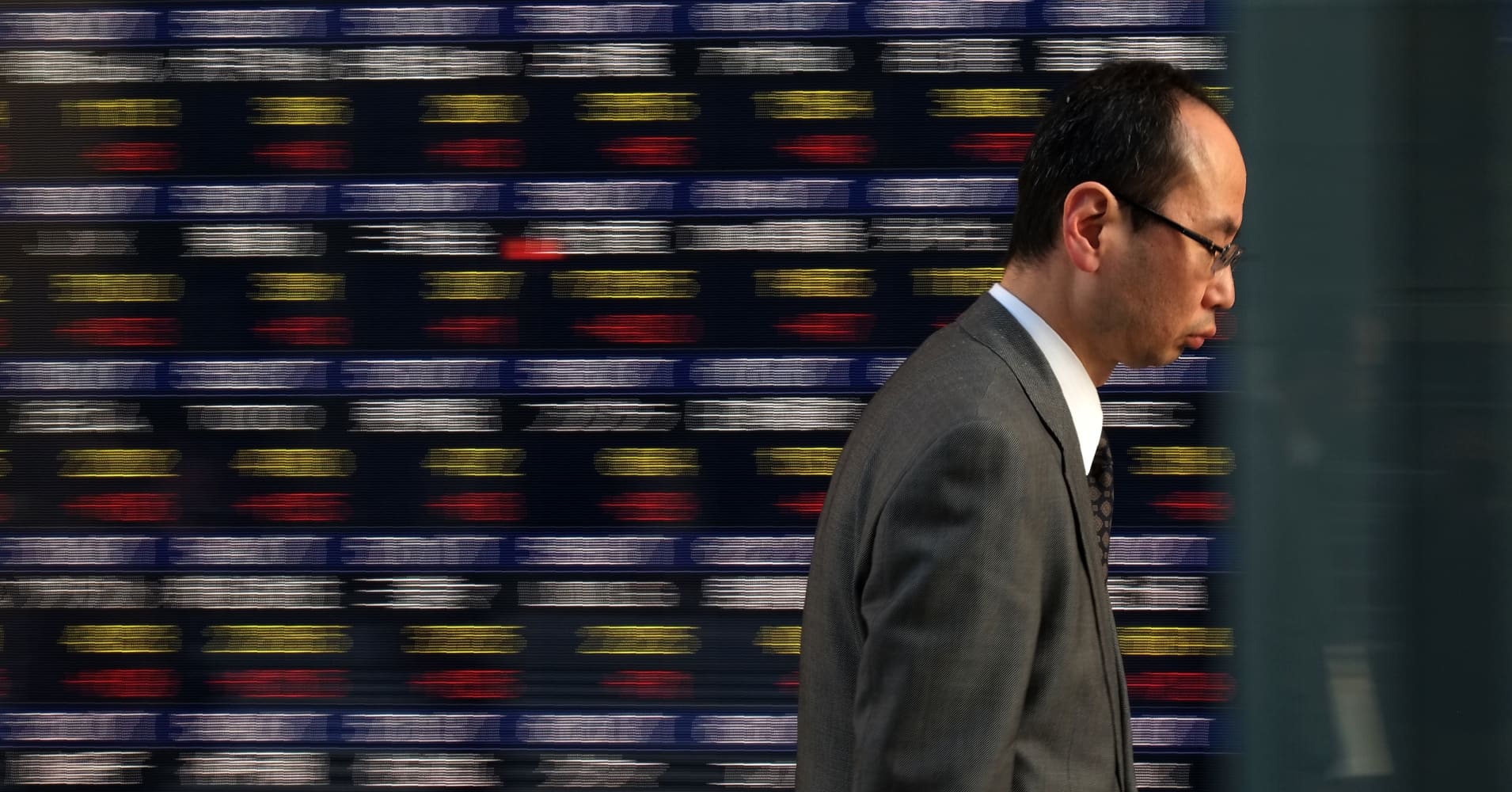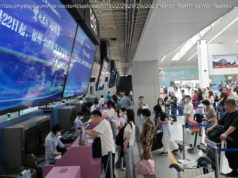 Asian markets fell on Friday, as investors digested China’s full-year trade figures in yuan-terms and waited for more dollar-denominated data to be released.
Asian markets fell on Friday, as investors digested China’s full-year trade figures in yuan-terms and waited for more dollar-denominated data to be released.
Mainland Chinese shares were lower after official data showed that Chinese exports dropped 2 percent on-year in yuan terms in 2016, while imports picked up 0.6 percent. The Shanghai composite was down 0.38 percent while Shenzhen composite slipped 0.68 percent.
In South Korea, the Kospi lost 0.42 percent, after the Bank of Korea left benchmark rates unchanged at 1.25 percent, which was aligned with expectations by a Reuters poll of analysts, as it awaits for more policy clarity out of the U. S. under a Trump administration.
Samsung Group leader Jay Lee left the special prosecutor’s office early on Friday. Lee was held for more than 22 hours for questioning over bribery suspicions in a corruption scandal, involving President Park Geun-hye, The special prosecutor’s office is considering whether to seek an arrest warrant for Lee, Yonhap News Agency reported on Friday.
Heavily-weighted Samsung Electronics , plunged 2.58 percent, Samsung C&T fell 0.39 percent, and Samsung Heavy dropped 1.41 percent.
The Nikkei 225 gained 0.53 percent in early Asian hours.
Troubled airbag maker Takata soared 16.47 percent or 150 points to hit its daily price limits in just thirty minutes of trading, after the Journal reported that it could plead guilty by Friday to criminal misconduct over defective air bags and pay nearly $1 billion to resolve the criminal probe. The settlement would include a $25 million criminal fine, $125 million in victim compensation and $850 million to compensate automakers who suffered losses from the recalls, sources told Reuters.
Australia’s ASX 200 was down 0.93 percent, with its financial sub-index leading the losses, down 1.76 percent.
Australia’s « Big Four » were dragged down more than 1 percent: National Australia Bank fell 1.78 percent, Commonwealth Bank was off 1.79 percent, ANZ slipped 2.21 percent and Westpac was 2.11 percent lower.
Hong Kong’s Hang Seng advanced 0.32 percent.
Investors also noted Fed Chair Janet Yellen avoided any remarks on monetary policy in prepared remarks at an event late Thursday in the U. S. , though she did later say she had no major worries on the economy over the short term.
At the same time, a downbeat reaction to a Wednesday press conference by President-elect Donald Trump lingered. He took shots at the pharmaceutical industry and failed to provide new details on three of his key policies: tax reform, deregulation of certain sectors and fiscal stimulus. The lack of details saw traders unwind some of their Trump trade, which sent stocks and the dollar lower.
The greenback was up against a basket of currencies to trade at 101.41 early Friday, compared to levels as low as 100.72 on Thursday in the U. S.
« With just over a week until his inauguration, (traders) hoped that Donald Trump would spend some time outlining the scope of his infrastructure plans, » said Kathy Lien, managing director of foreign exchange strategy for BK Asset Management. « Unfortunately the President-elect failed to do so yesterday and the U. S. dollar dropped as a result. »
Among other currency majors, the yen slipped against the greenback to trade at 114.95, compared to yesterday’s lows of 113.73. The Australian dollar continued to rally to one-month high against the dollar, at $0.75 compared to levels around $0.72 seen last week.
Stateside, the Dow Jones industrial average dropped 63.28 points, or 0.32 percent, to close at 19,891. The S&P 500 fell 4.88 points, or 0.21 percent to 2,270.44, while the Nasdaq composite dropped 16.16 points, or 0.29 percent, to end at 5,547.49.
Oil prices gained during Asian trade, with U. S. crude futures up 0.19 percent to $53.11 a barrel, and global benchmark Brent inching up 0.2 percent to $56.12.
Spot gold eased 0.08 percent to $1,194.26 per ounce, after hitting a high of $1,206.98 on Thursday, its best since Nov.23.






